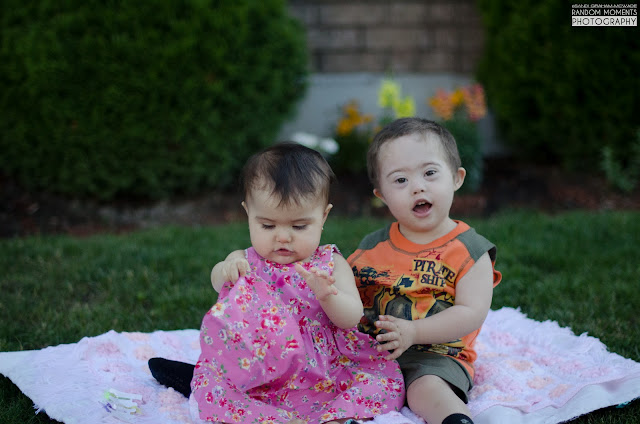Characteristics and Health Concerns
The following article is written by Stephanie Mamayson for the Canadian Down syndrome Society. Here you will read about some characteristics and health concerns that people with Down syndrome may have.
No individual with Down syndrome will have all the health complications, however, every child needs good preventative medical care. Teamwork between the family and doctors is vital to anticipate potential problems and provide specific and individual treatment should they occur. Appropriate health care can enhance the potential of individuals with Down syndrome.
To view the actual article click the following: Characteristics and Health Concerns for People with Down syndrome (This is a Microsoft Word document) or visit the CDSS page here.
Characteristics
There are several physical characteristics that are more common for babies with Down syndrome. They may include chubby cheeks, large, round eyes, larger tongue, smaller limbs and smaller body frame.
There are several physical characteristics that are more common for babies with Down syndrome. They may include chubby cheeks, large, round eyes, larger tongue, smaller limbs and smaller body frame.
Newborns with Down syndrome look like babies who do not have Down syndrome. Babies and children with Down syndrome look like other members of their family.
Health Concerns
Children with Down syndrome may face health complications beyond the usual childhood illnesses. Problems such as some congenital malformations of the heart can be life-threatening where other conditions are not as serious. More than 40 per cent of children born with Down syndrome have a congenital heart malformation. Because of this high incidence, an echocardiogram is recommended. The diagnosis of a heart problem does not mean the baby is, or will become, seriously ill. The extent of heart problems varies greatly.
Hypothyroidism is more common in newborns and children with Down syndrome. It is important that blood tests are repeated several times in the first few years, and annually after that, to ensure early detection and appropriate treatment.
Some degree of hearing loss, which is most often due to frequent ear infections, affects a high percentage of children with Down syndrome. Adequate hearing is critical to the development of good language skills, so periodic medical check-ups should include visualization of the ear canals to ensure no infection is present. Vision problems are also fairly common in many children with Down syndrome. An ophthamological exam is recommended during the baby's first year.
To view the actual article click the following: Characteristics and Health Concerns for People with Down syndrome (This is a Microsoft Word document) or visit the CDSS page here.
